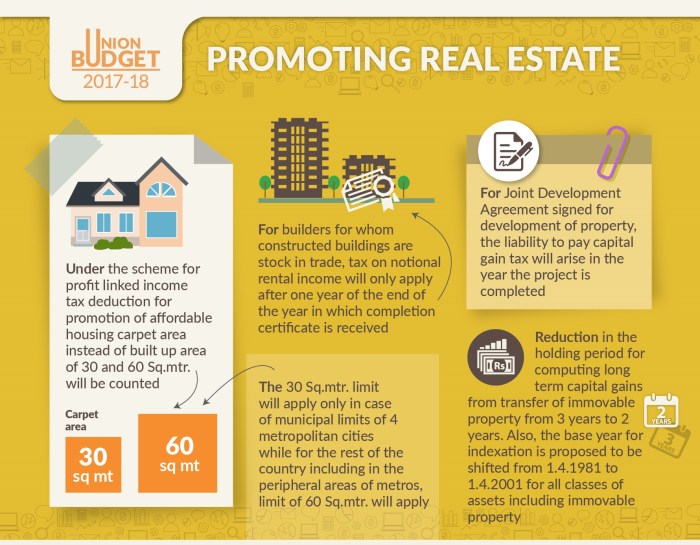
Affordable housing policy impact is a crucial topic in today’s urban landscape, as it directly affects the quality of life for countless individuals and families. This policy aims to ensure that everyone has access to decent housing without financial strain, creating more equitable communities. Understanding the intricacies of how these policies are shaped and their ripple effects can illuminate pathways to more sustainable and thriving neighborhoods.
In this discussion, we will explore how affordable housing policies can foster social benefits, stimulate local economies, and influence market dynamics while also examining the integration of technology in housing solutions. The implications extend far beyond mere numbers; they hold the potential to transform lives and uplift entire communities.
Affordable Housing Policy Overview
Affordable housing policies are crucial frameworks designed to ensure that individuals and families can access housing that fits within their financial means. These policies aim to create and preserve affordable housing options, enabling low- and moderate-income households to secure stable living environments. By promoting affordable housing, governments strive to mitigate homelessness, promote economic stability, and enhance community well-being.The main objectives of implementing affordable housing policies include increasing the availability of affordable units, promoting diverse and inclusive communities, and improving the quality of life for residents.
Governments often play a pivotal role in shaping these policies by providing funding, regulatory frameworks, and incentives for developers to create affordable housing. Their involvement is essential in addressing the housing crisis many regions face today.
Impact on Communities
Affordable housing policies have a profound impact on the communities they serve. They provide numerous social benefits, including enhanced access to education, healthcare, and employment opportunities for low-income families. By ensuring that affordable housing is available, communities can foster diversity, reduce poverty, and promote social cohesion.Economically, affordable housing has a positive effect on local economies. It stimulates job growth, as construction and maintenance of these units create employment opportunities.
Additionally, affordable housing encourages consumer spending in the neighborhood, resulting in a more vibrant local economy. Moreover, affordable housing contributes to neighborhood stability and growth. When families have access to affordable housing, they are more likely to remain in their communities, leading to stronger social ties and increased investment in the area. This stability not only benefits families but also enhances the overall resilience of neighborhoods.
Real Estate Market Trends
Affordable housing policies significantly influence real estate market trends. In areas with robust affordable housing initiatives, the market often displays increased demand for mixed-income communities, where affordable and market-rate housing coexists. This integration can help stabilize property values and promote sustainable development.Conversely, regions without affordable housing initiatives may experience higher rates of gentrification and displacement, leading to a more pronounced divide between socio-economic classes.
The absence of affordable options can drive up property prices, making it increasingly difficult for lower-income families to find suitable housing.Over time, affordable housing can exert a stabilizing influence on property values, as mixed-income developments tend to attract a diverse population and promote local amenities. This dynamic can create a more balanced real estate market, benefiting all stakeholders involved.
Real Estate Investment
The implications of affordable housing policies on real estate investment strategies are substantial. Investors are increasingly recognizing the potential for long-term returns in the affordable housing sector, as demand continues to outpace supply. This shift in focus encourages developers to explore innovative financing options and partnerships with government entities.Investors can adapt to the changes brought by affordable housing initiatives by diversifying their portfolios to include affordable and mixed-use developments.
These projects not only enhance community welfare but also present lucrative opportunities for returns.Examples of successful real estate investments in affordable housing sectors can be found in various urban areas. For instance, a developer may partner with local government to revitalize a distressed neighborhood through a mixed-income housing project, resulting in both social impact and profitable returns.
Smart Home Technology Integration
Integrating smart home technologies in affordable housing projects presents an exciting opportunity to enhance living experiences for residents. Features such as energy-efficient appliances, smart thermostats, and advanced security systems can significantly improve the quality of life for tenants while reducing utility costs.Successful examples illustrate how smart home features can provide added value. For instance, a development that incorporates smart home technologies could see reduced energy consumption, which not only lowers costs for residents but also contributes to environmental sustainability.
A cost-benefit analysis of implementing smart technologies in affordable housing reveals that, while the initial investment may be higher, long-term savings on utilities and maintenance can lead to significant economic benefits for both residents and developers. By embracing such innovations, affordable housing projects can become more attractive and sustainable.
Commercial Real Estate and Affordable Housing
The relationship between commercial real estate and affordable housing policies is increasingly recognized as integral to community development. By incorporating affordable housing into commercial real estate projects, developers can create mixed-use developments that foster economic growth and enhance livability.Potential for mixed-use developments is vast, as they can include retail, office, and residential spaces within the same project. This integration not only meets housing needs but also creates vibrant commercial hubs that attract businesses and consumers alike.Case studies of successful commercial real estate projects that include affordable housing components demonstrate the effectiveness of this approach.
One notable example is a mixed-use development in an urban area that includes affordable units alongside retail spaces. This setup not only meets housing demands but also revitalizes the local economy by providing jobs and services to the community.
Luxury Homes and Real Estate

Affordable housing policies impact the luxury real estate market in several ways. While luxury developments can sometimes appear to conflict with affordable housing initiatives, they can also coexist and benefit from one another. For instance, luxury developments often help to fund affordable housing projects through inclusionary zoning policies or community benefit agreements.The luxury market can adapt to the presence of affordable housing by offering diverse product lines that appeal to varying income levels.
Developers can create upscale units that offer amenities appealing to affluent buyers while simultaneously ensuring that affordable options are available in the same vicinity.Trends in luxury home investments have shown that developers are increasingly aware of the demand for affordable housing. By aligning their investment strategies with community needs, they can not only enhance their brand reputation but also contribute positively to the overall housing market.
Policy Recommendations for Improvement
To improve existing affordable housing policies, a comprehensive framework must be designed that addresses the unique challenges faced by different communities. This framework should emphasize collaboration between stakeholders, including government agencies, non-profits, and private developers.Key stakeholders in policy-making include local governments, housing authorities, community organizations, and resident advocacy groups. Each plays a vital role in shaping effective policies that enhance affordable housing availability.Examples of successful policy changes can be seen in various regions that have implemented innovative housing solutions, such as inclusionary zoning, land trusts, and public-private partnerships.
These approaches demonstrate the potential for collaborative efforts to create lasting improvements in affordable housing accessibility.
Ultimate Conclusion
In summary, the impact of affordable housing policies extends to various sectors, shaping not only community dynamics but also influencing real estate trends and investment strategies. As we look ahead, it’s clear that thoughtful policy improvement can lead to enhanced living conditions, sustainable economic growth, and a more inclusive society. By prioritizing affordable housing, we take significant steps toward addressing housing needs while paving the way for innovation and resilience in our communities.
Helpful Answers
What is affordable housing policy?
Affordable housing policy refers to government initiatives designed to ensure that housing is accessible to individuals and families at various income levels, promoting fair living conditions.
How do affordable housing policies impact local economies?
These policies can stimulate local economies by increasing job opportunities, enhancing property values, and attracting new businesses to the area.
Can affordable housing affect property values?
Yes, affordable housing can stabilize or increase property values in communities by creating diverse neighborhoods and encouraging investment.
What role does technology play in affordable housing?
Technology can enhance affordable housing through smart home features that improve energy efficiency and living conditions while reducing long-term costs for residents.
How can investors benefit from affordable housing initiatives?
Investors can find opportunities in affordable housing projects that offer stable returns and align with social responsibility goals, appealing to both traditional and impact investors.





